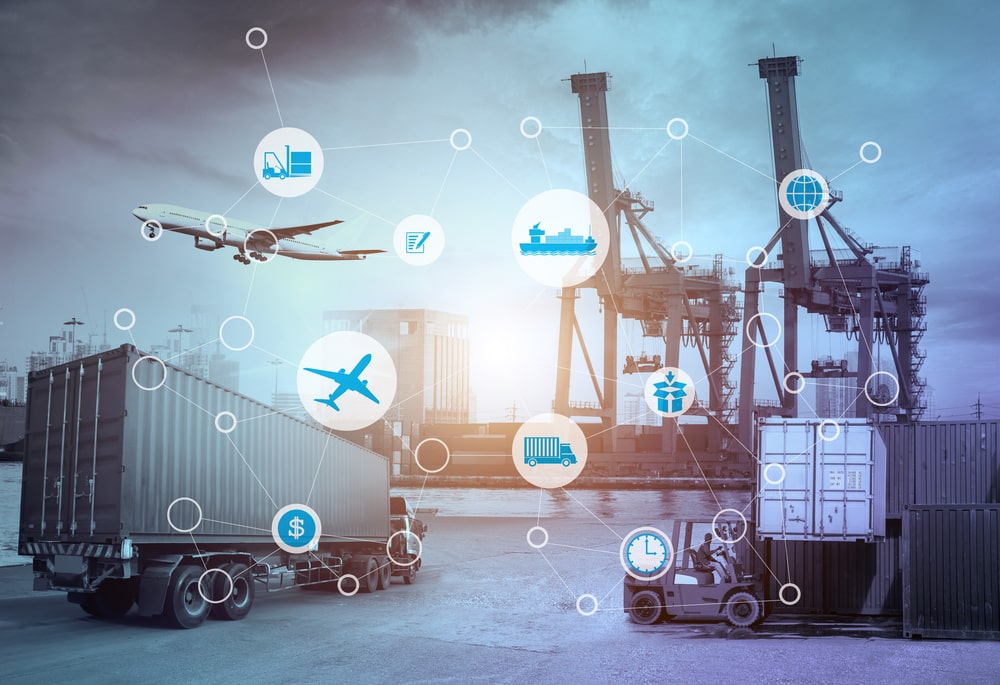Welcome to the FR Logistics blog, where we bring you the latest trends in logistics in the world of logistics. In this post, we will explore the emerging trends that are shaping the industry and revolutionizing the way goods are transported and delivered. From drone deliveries to autonomous vehicles and the Internet of Things (IoT), let’s dive into the exciting future of logistics.
The logistics business assumes a vital part in working with worldwide exchange and supply chain management. As innovation keeps on progressing at a quick speed, it has prepared for several invigorating patterns that are changing the logistics scene. Here, we will investigate three key patterns: drone conveyances, independent vehicles, and the Web of Things (IoT).
Read more about the project of road transport
Drone Deliveries: Taking the latest trends in logistics
Welcome to the FR Logistics blog, where we bring you the latest trends in logistics in the world of logistics. In this post, we will explore the emerging trends that are shaping the industry and revolutionizing the way goods are transported and delivered. From drone deliveries to autonomous vehicles and the Internet of Things (IoT), let’s dive into the exciting future of logistics.
The logistics business assumes a vital part in working with worldwide exchange and supply chain management. As innovation keeps on progressing at a quick speed, it has prepared for several invigorating patterns that are changing the logistics scene. Here, we will investigate three key patterns: drone conveyances, independent vehicles, and the Web of Things (IoT).
Drone Deliveries: Taking Logistics to New Heights
Unmanned aerial vehicles, commonly known as drones, have emerged as a game-changer in the logistics industry. Drones offer a cost-effective and efficient solution for door-to-door service, especially in congested urban areas. With their ability to bypass traffic and deliver packages directly to the recipient’s doorstep, drone deliveries are revolutionizing the way logistics companies operate.
The benefits of drone deliveries are numerous. They reduce delivery times, minimize human error, and lower carbon emissions by eliminating the need for traditional air freight services. Furthermore, drones can reach remote and inaccessible areas, making them ideal for delivering medical supplies, sea freight forwarding services, disaster relief aid, and other urgent shipments.
Despite the immense potential of drone deliveries, there are still regulatory and logistical challenges to overcome. However, as governments worldwide recognize the value of this technology, we can expect to see significant advancements in this field in the coming years.
Read more about freight forwarding
Autonomous Vehicles: Redefining the Transportation Landscape
Autonomous vehicles, including self-driving trucks and delivery vans, are poised to transform the logistics industry. These vehicles use advanced sensors, road freight forwarding, artificial intelligence, and machine learning algorithms to navigate roads, make decisions, and transport goods without human intervention.
The benefits of autonomous vehicles in logistics are substantial. They improve road safety by eliminating human error, increasing fuel efficiency, and optimizing delivery routes for maximum efficiency. Additionally, autonomous vehicles have the potential to address the shortage of truck drivers in the industry, ensuring a smooth flow of goods across borders.
However, the widespread adoption of autonomous vehicles faces challenges such as regulatory frameworks, public acceptance, and technical limitations. As technology continues to mature and regulations evolve, we can expect logistics and supply chain management to become an integral part of the logistics ecosystem.
IoT in Logistics: Connecting the Supply Chain
The Internet of Things (IoT) is an organization of interconnected gadgets that gather and exchange information. In the logistics industry, IoT plays a crucial role in streamlining operations, enhancing visibility, and improving efficiency throughout the supply chain.
By deploying IoT-enabled sensors and devices, logistics companies can track and monitor shipments in real-time, ensuring a seamless Logistics service from China to Bangladesh. This real-time visibility enables proactive decision-making, reduces the risk of theft or damage, and ensures timely delivery. Furthermore, IoT devices can provide valuable data on factors such as temperature, humidity, and location, ensuring the integrity of sensitive goods like pharmaceuticals or food products.
The integration of IoT in logistics also enables predictive maintenance, optimizing the performance of vehicles and equipment. By collecting data on fuel consumption, engine health, and maintenance schedules, logistics companies can proactively address issues, minimize downtime, and reduce costs.
Conclusion
The logistics industry is on the cusp of a technological revolution, driven by emerging trends such as drone deliveries, autonomous vehicles, and IoT. These innovations promise to enhance efficiency, reduce costs, and improve customer satisfaction. As FR Logistics, we are committed to staying at the forefront of these trends, leveraging technology to provide seamless and reliable logistics services from China to Bangladesh.
Embracing these latest trends in logistics requires a forward-thinking approach and a willingness to adapt to the changing landscape. By harnessing the power of drone deliveries, autonomous vehicles, and IoT, FR Logistics is well-positioned to meet the evolving needs of our clients.
Thank you for reading our blog post on the latest trends in logistics. Stay tuned for more updates on how FR Logistics is shaping the future of logistics with innovative solutions.”








